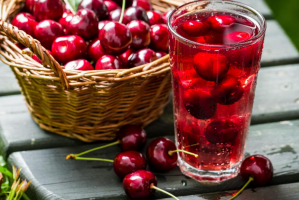Top 7 Health Benefits of Cherry
During the summer, everyone adores eating delicious red cherries. This beautiful red fruit has a terrific combination of sweet and sour flavors and gives the ... read more...ideal splash of color to your sweets. They're not only tasty, but they're also high in vitamins, minerals, and plant chemicals that have strong health benefits. Here are the best ten health advantages of cherries.
-
Cherries are little stone fruits with a wide range of hues and tastes. There are two types of cherry: tart cherries (Prunus cerasus L.) and sweet cherries (Prunus avium L.). Their hues range from yellow to a deep blackish-red. All types are extremely healthy, and abundant in fiber, vitamins, and minerals. One cup (154 grams) of sweet, raw, pitted cherries provides:
- Calories: 97
- Protein: 2 grams
- Carbs: 25 grams
- Fiber: 3 grams
- Vitamin C: 18% of the Daily Value (DV)
- Potassium: 10% of the DV
- Copper: 5% of the DV
- Manganese: 5% of the DV
These nutrients, notably fiber, vitamin C, and potassium, provide several health benefits. Vitamin C is necessary for the immune system and skin health, whereas potassium is required for muscular contraction, neuron function, blood pressure management, and a variety of other vital biological activities. Cherries are also high in fiber, which supports digestive health by feeding beneficial gut flora and improving bowel regularity. They also include B vitamins, manganese, copper, magnesium, and vitamin K.
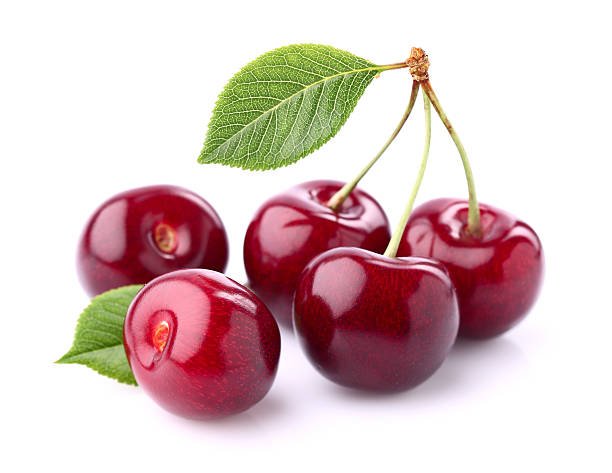
Packed with nutrients 
Packed with nutrients -
Cherry's high concentration of plant components may be responsible for the fruit's numerous health advantages. Though the amount and kind of antioxidants and anti-inflammatory chemicals vary according to the variety, all cherries are high in antioxidants and anti-inflammatory compounds. This high antioxidant concentration may aid in the fight against oxidative stress, a condition associated with a variety of chronic illnesses and premature aging.
For instance, one analysis discovered that consuming cherries successfully lowered inflammation in 11 of 16 trials and oxidative stress indicators in 8 of 10 studies. Cherries are particularly high in polyphenols, a class of plant compounds that aid in the prevention of cellular damage, the reduction of inflammation, and the promotion of general health. Polyphenol-rich diets may, in fact, protect against a wide range of chronic diseases, including heart disease, diabetes, mental decline, and some malignancies. These stone fruits also feature carotenoid pigments such as beta-carotene and vitamin C, which have anti-inflammatory and antioxidant qualities.

Rich in antioxidants and anti-inflammatory compounds 
Rich in antioxidants and anti-inflammatory compounds -
According to research, the anti-inflammatory and antioxidant substances found in cherries may aid in the relief of exercise-induced muscular soreness, injury, and inflammation. Tart cherries and their juice appear to be more beneficial than sweet cherries and juice, yet both may benefit athletes. In top athletes such as cyclists and marathon runners, tart cherry juice and concentrate have been shown to expedite muscle healing, reduce exercise-induced muscular soreness, and prevent strength loss. Furthermore, some research shows that cherry products may improve workout performance.
A study of 27 endurance runners found that those who received 480 mg of powdered tart cherries daily for 10 days before a half-marathon had 13 percent quicker race times and less muscle discomfort than the placebo group. Though most research on the relationship between cherries and exercise includes trained athletes, tart cherry juice may also help non-athletes. A study of 20 athletic women found that those who drank 2 ounces (60 ml) of tart cherry juice twice daily for 8 days recovered faster and had less muscular damage and stiffness after performing repeated sprint workouts than those who did not. These findings, while encouraging, are related to concentrated cherry products such as juice and powder.
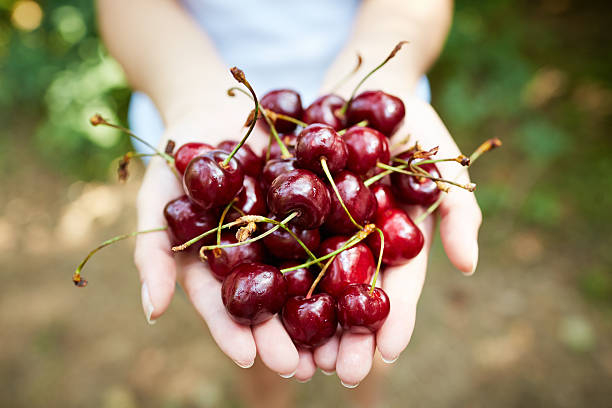
Can boost exercise recovery 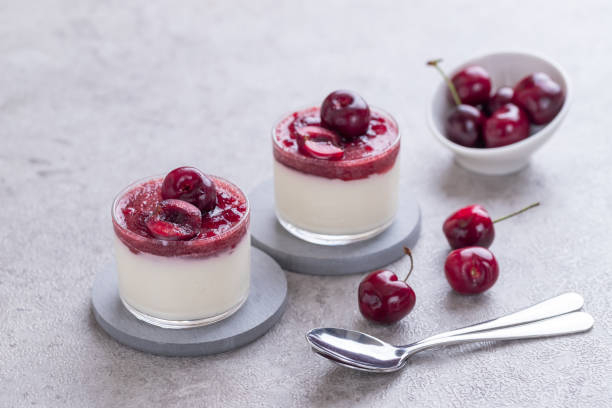
Can boost exercise recovery -
Consuming more nutrient-dense fruits, such as cherries, is a delightful approach to protect your heart. Many studies demonstrate that eating fruits is related to a lower risk of heart disease. Cherries are especially advantageous in this area since they are high in minerals and substances are known to improve heart function, such as potassium and polyphenol antioxidants. One cup (154 grams) of pitted, sweet cherries contains 10% of the daily need for potassium, a mineral that is necessary for heart health. It is required for a normal heartbeat and aids in the removal of excess sodium from the body, hence controlling blood pressure.
This is why increased potassium consumption has been linked to a lower risk of heart disease and stroke. Furthermore, cherries contain high levels of polyphenol antioxidants such as anthocyanins, flavonols, and catechins, which may help keep your heart healthy by preventing cellular damage and lowering inflammation. In fact, a 5-year study of 84,158 participants revealed that increased polyphenol consumption — particularly anthocyanins, flavonols, and catechins — was related to a considerably lower risk of heart disease.
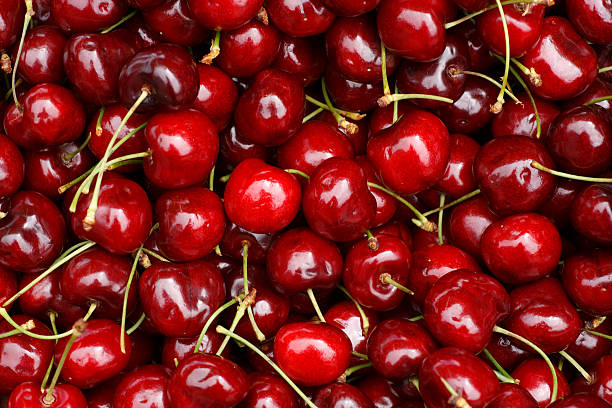
May benefit heart health 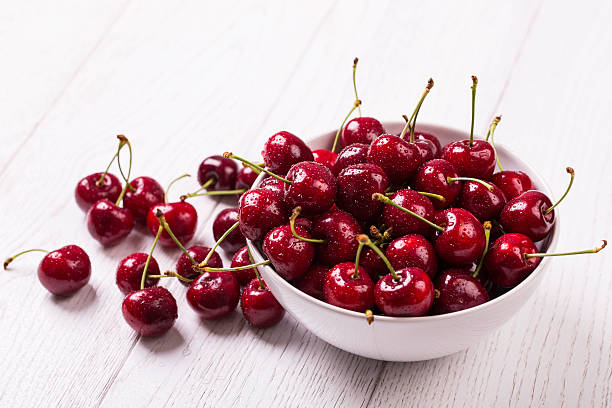
May benefit heart health -
Cherries may help lessen the symptoms of arthritis and gout, a kind of arthritis caused by an accumulation of uric acid in your joints, which can cause significant swelling, inflammation, and discomfort. Many studies demonstrate that cherries assist to reduce inflammation and oxidative stress by decreasing inflammatory proteins, which can help alleviate arthritis symptoms. Furthermore, they can lower uric acid levels in the body, making them very useful for patients suffering from gout.
A study of ten women discovered that consuming two servings (10 ounces or 280 grams) of sweet cherries following overnight fast reduced levels of the inflammatory marker C-reactive protein (CRP) and dramatically reduced uric acid levels five hours later. Another research of 633 patients with gout found that those who ate fresh cherries for two days had 35% fewer gout episodes than those who did not. Furthermore, when cherries were taken with the gout medicine allopurinol, gout episodes were 75 percent less frequent than when neither cherries nor allopurinol was ingested.
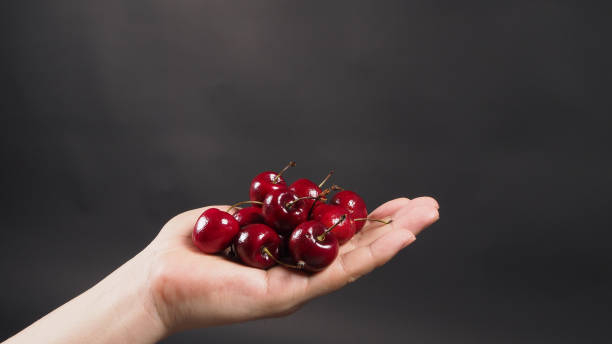
May improve symptoms of arthritis and gout 
May improve symptoms of arthritis and gout -
Consuming cherries or drinking sour cherry juice may help you sleep better. The fruit's high concentration of plant chemicals may be responsible for its sleep-promoting properties. Cherries also contain melatonin, a chemical that aids in the regulation of your sleep-wake cycle. A study of 20 persons found that those who drank sour cherry juice concentrate for 7 days had significantly higher melatonin levels, sleep duration, and sleep quality than those who drank a placebo.
2-week research on older persons with insomnia discovered that consuming 1 cup (240 ml) of tart cherry juice before bedtime increased sleep time by 84 minutes. These investigations, however, make use of concentrated cherry products. It is unknown whether eating fresh cherries before going to bed will have the same impact. Finally, further research is needed to better understand how eating cherries and cherry products may help with sleep.

May improve sleep quality 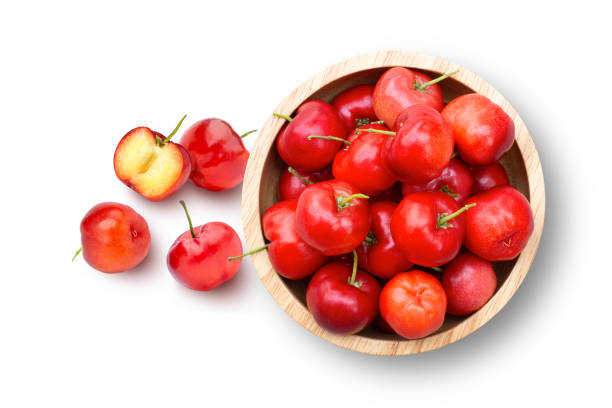
May improve sleep quality -
Cherries are high in antioxidants, which battle free radicals that cause the skin to seem lifeless. This gives your skin a younger and healthier appearance. Cherries can aid in the removal of black spots on your skin caused by sun exposure. Simply purée some cherries with a sprinkle of turmeric and a spoonful of honey. Apply this paste for 10-15 minutes before rinsing. It lightens dark spots and evens out skin tone. Cherries include vitamins B, C, and E, which help to prevent hair loss and breakage and keep the scalp nourished. Vitamin C also gives your skin a natural shine.
Cherries are said to be one of the most energizing fruits. They can aid in the formation of blood cells, which improves circulation and increases energy levels. So, enjoy the season's delicious joys while they last and gain all the advantages. If you have no medical conditions, you can have half a cup of cherries in your regular diet.

Anti-Ageing Properties 
Anti-Ageing Properties









